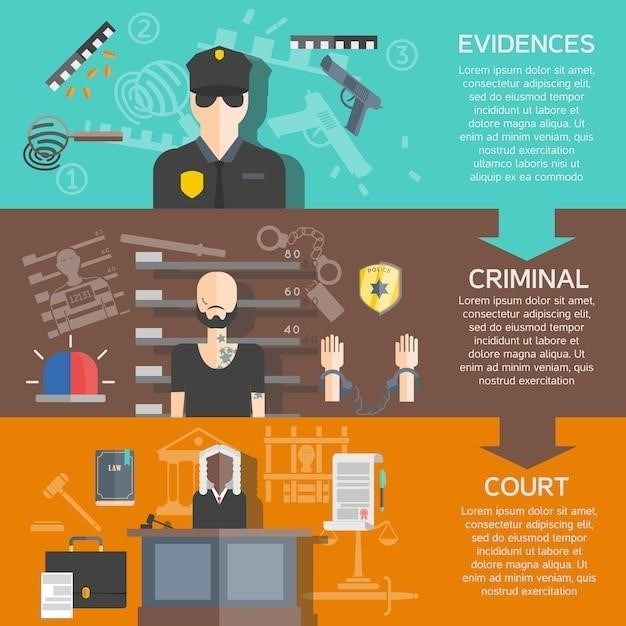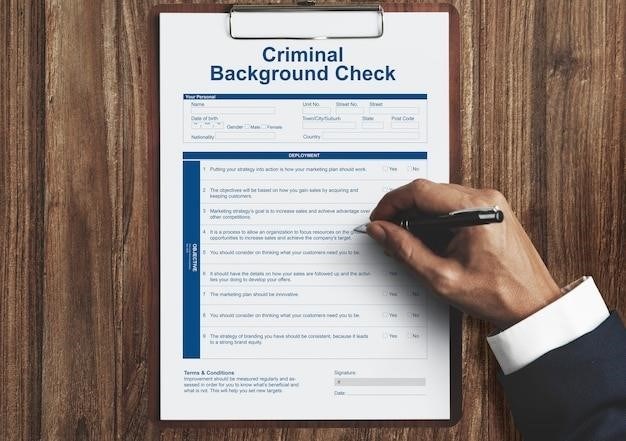Filing a Police Report⁚ Methods and Situations
Filing a police report can be done in person at your local station, by phone for non-emergencies, or online for certain incidents. Examples include theft, assault, or accidents. Many departments offer online reporting for minor crimes.
Reporting Methods⁚ In-Person, Phone, and Online
Several methods exist for filing a police report. Visiting your local precinct allows direct interaction with an officer, providing immediate details and potentially showing physical evidence. Alternatively, a phone call is suitable for non-emergency situations, enabling a quick report of less serious incidents. Many departments now utilize online reporting systems, ideal for minor crimes or incidents where immediate in-person reporting isn’t necessary. This offers convenience and efficiency for the reporter, allowing them to document the event from the comfort of their home or office. The choice of method depends on the urgency and nature of the incident.
Situations Requiring a Police Report⁚ Crimes, Suspicious Activity, Accidents
A police report is crucial documentation for various situations. Crimes like theft, assault, or vandalism necessitate a formal report to initiate investigations and potential prosecutions. Suspicious activity, even if seemingly minor, should be reported to alert authorities and prevent escalation. Accidents, whether involving vehicles or injuries, require reports for insurance claims, legal proceedings, and to establish a record of the event. Failing to report such incidents can hinder investigations and create legal complications later. Prompt reporting aids law enforcement in maintaining community safety and order.

Essential Information for a Police Report
Accurate reporting requires details⁚ your information, incident specifics (date, time, location), and any available evidence (photos, videos). Thoroughness is key.
Personal Information⁚ Name, Address, Contact Details
Providing accurate personal details is crucial for effective police reporting. Include your full legal name, current residential address, and multiple reliable contact numbers (home, mobile, work); If you’re reporting on behalf of someone else, ensure you have their explicit permission and include their details accurately. Accurate contact information allows law enforcement to reach you for follow-up questions or updates regarding the investigation. Remember, omitting or providing false information can hinder the investigation and potentially compromise its success.
Incident Details⁚ Date, Time, Location, People Involved
Precisely documenting the incident’s details is paramount. Note the exact date and time the incident occurred, using a 24-hour clock if possible for clarity. Clearly describe the location, including street address, cross streets, or any other identifying landmarks. List all individuals involved, noting their names, descriptions, and any known affiliations. If applicable, specify their roles (victim, witness, suspect). The more precise and detailed this information, the more effectively law enforcement can investigate and respond.
Evidence⁚ Photos, Videos, Damaged Property
Documenting evidence is crucial. Include detailed descriptions of any physical evidence, such as photographs of damaged property or injuries. Note the condition and location of any recovered items. If videos exist, mention their existence and content. Accurate descriptions of damaged property, including makes, models, and serial numbers if available, are essential for insurance claims and investigations. Mentioning the presence of any witnesses is also important.
Understanding Police Report Writing
Effective police reports are crucial for investigations and legal proceedings. Clarity and conciseness prevent ambiguity and ensure accuracy. Poor report writing can hinder prosecution.
Purpose and Use of Police Reports⁚ Information Sharing, Legal Proceedings
Police reports serve as vital communication tools within law enforcement agencies, facilitating information sharing among officers and departments. They provide a chronological account of events, witness statements, and evidence collected during an investigation. These reports are crucial in legal proceedings, serving as evidence in criminal and civil cases, aiding in arrests, and supporting prosecutorial efforts. The accuracy and completeness of a report directly influence its value in court and its contribution to the overall justice process. Well-written reports help ensure successful prosecutions and contribute to public safety.
Common Deficiencies in Police Report Writing⁚ Impact on Prosecution
Inadequate police report writing frequently leads to challenges in prosecution. Common flaws include incomplete information, lack of clarity, and inconsistent narratives. Missing details about crucial evidence or witness accounts can weaken a case significantly. Poor organization and ambiguous language can confuse readers, hindering understanding and potentially jeopardizing a conviction. These deficiencies not only affect the prosecution’s ability to present a strong case but also increase the likelihood of case dismissal.
Importance of Clear and Concise Writing⁚ Avoiding Ambiguity
Clear and concise writing is paramount in police reports to avoid misinterpretations and ensure effective communication. Ambiguity can lead to confusion among investigators, prosecutors, and judges, potentially compromising the integrity of the investigation and hindering legal proceedings. Precise language, accurate descriptions, and a logical flow of information are essential for a successful report. Using simple, direct sentences and avoiding jargon enhances readability and minimizes the risk of miscommunication.
Resources for Police Report Writing
Numerous online resources, including example PDFs and training manuals, offer guidance on effective police report writing. These resources provide templates and best practices.
Examples of Police Report Templates⁚ PDFs and Online Resources
Numerous websites and law enforcement agencies provide downloadable PDF templates for police reports. These templates often include sections for incident details, witness information, and evidence descriptions, ensuring consistent formatting. Online resources also offer sample reports illustrating proper structure and writing style, helping officers create clear, concise, and legally sound documentation. Access to these examples allows for learning best practices and avoiding common errors.
Guideline Documents⁚ Manuals and Training Materials
Many police departments provide comprehensive manuals and training materials dedicated to effective report writing. These resources often include detailed guidelines on formatting, grammar, and legal considerations. They may also offer examples of well-written reports, showcasing best practices for clarity and accuracy. Access to these internal documents ensures officers consistently adhere to departmental standards and legal requirements, improving the quality and reliability of police reports.
Best Practices⁚ Tips for Effective Report Writing
Effective police reports prioritize clarity and accuracy. Use concise language, avoiding jargon and ambiguity. Maintain a chronological order of events, presenting facts objectively. Thoroughly document all details, including witness statements and evidence. Proofread carefully to eliminate errors. Remember, a well-written report is crucial for investigations, prosecutions, and ensuring accountability. Adhering to best practices enhances the report’s value as a legal document.

Analyzing Effective Police Report Examples
Studying successful and unsuccessful police report examples reveals key elements for improvement. Analyzing these examples enhances writing skills and promotes best practices.
Key Elements of a Well-Written Report⁚ Organization and Clarity
Effective police reports prioritize clear, concise writing and logical organization. A well-structured report follows a chronological order, presenting facts objectively without personal opinions. Using precise language and avoiding jargon ensures easy comprehension. Details such as date, time, location, and individuals involved must be accurately recorded. Headings and subheadings improve readability, while proper grammar and spelling maintain professionalism. A well-written report leaves no room for misinterpretation, crucial for legal proceedings and investigations.
Examples of Successful and Unsuccessful Reports⁚ Case Studies
Analyzing successful police reports reveals clear narratives, accurate details, and objective language. These examples showcase how well-organized information, including witness statements and evidence, strengthens the report’s impact. Conversely, unsuccessful reports often suffer from poor organization, vague descriptions, or subjective interpretations. Case studies highlight the difference between a report that effectively supports an investigation and one that hinders it, emphasizing the importance of clear, concise writing for successful prosecution.
Learning from Real-World Examples⁚ Improving Report Writing Skills
Studying real police reports, both effective and ineffective, provides invaluable learning opportunities. Analyzing successful reports reveals best practices in organization, clarity, and detail. Conversely, examining poorly written reports highlights common pitfalls such as vagueness, omissions, and subjective biases. By critically reviewing these examples, officers can refine their writing skills, improving accuracy, clarity, and the overall effectiveness of their reports in legal proceedings and investigations.
